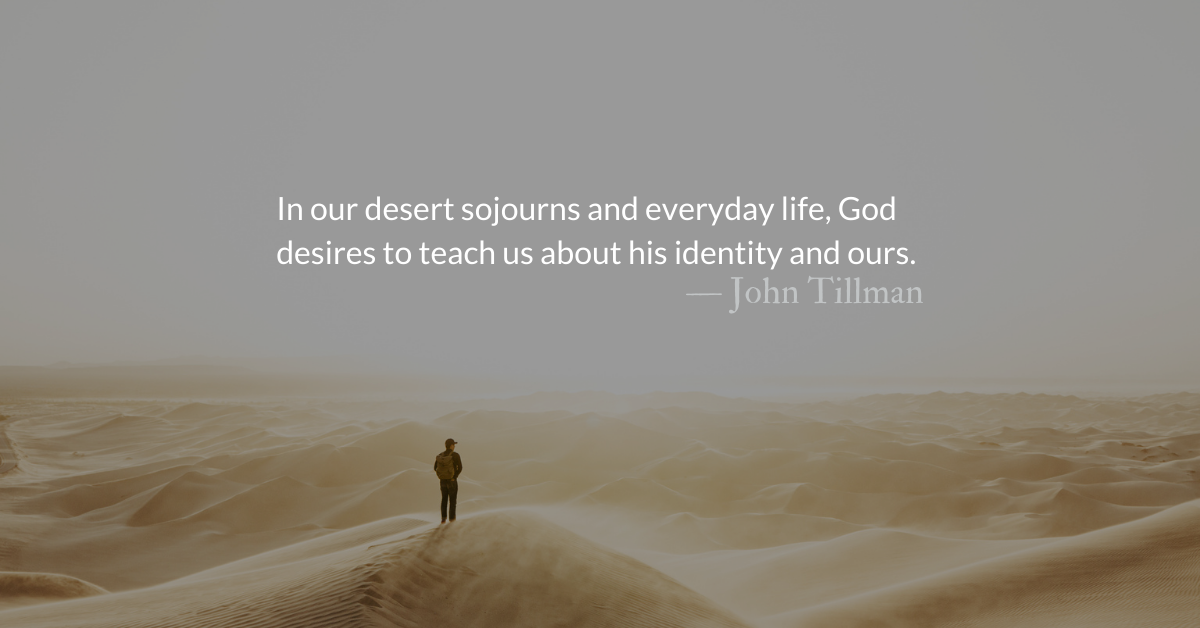Scripture Focus: Exodus 13.8-10, 19
8 On that day tell your son, ‘I do this because of what the Lord did for me when I came out of Egypt.’ 9 This observance will be for you like a sign on your hand and a reminder on your forehead that this law of the Lord is to be on your lips. For the Lord brought you out of Egypt with his mighty hand. 10 You must keep this ordinance at the appointed time year after year.
19 Moses took the bones of Joseph with him because Joseph had made the Israelites swear an oath. He had said, “God will surely come to your aid, and then you must carry my bones up with you from this place.”
Reflection: Attending God’s Lessons
By John Tillman
Pharaoh was not the only one learning about God through the Exodus. The Israelites learned about him as well.
At this point, God had not revealed much about himself. The only thing Israel knew about God was that he was the God of Abraham, Isaac, and Jacob. There was no prophecy or communication from God recorded in scripture other than Joseph telling his brothers on his deathbed that “God would surely come” to help them.
Through their liberation from Egypt and their time in the desert, God became Israel’s teacher. His curriculum taught the people about himself and about who they were meant to be. God described his liberation in relational terms, calling Israel, “my firstborn son.” When he liberated them, part of his purpose was deepening and expanding this relationship.
God is a creative instructor. Taste, sight, smell, repetition, touch, hearing—the God who designed senses engaged all of them in multisensory learning experiences. The elaborate festivals, feasts, and ceremonies of worship set the Israelites apart from other cultures and simultaneously taught them about the nature of God, their relationship to him, and their unique identity and mission.
Israel in the desert was attending the most creative spiritual education program designed. Attending holds two meanings. One is physical presence. One is mental attention. In every sense of the word, may we attend the lessons of our sojourn.
In our desert sojourns and everyday life, God desires to teach us about his identity and ours. If we attend to his lessons, the Holy Spirit can engage every sense, every moment, every touch, to turn us more into the likeness of his Son, Jesus Christ.
Many things can help us learn and pass the lessons to the next generation. The season of Lent, which we are in now, and other elements of the church calendar aid us in orienting our lives to the story of the gospel through the year. Weekly gatherings are an important part of our connection to our faith community and fellow believers. Daily practices of Bible reading, prayer, and other spiritual disciplines make our relationship to God personal rather than distant.
Through daily practices, we are to be filled with the Holy Spirit. The Holy Spirit is both living water and flame of fire within us. He sustains our life and fuels our passion for God and care for others.
Divine Hours Prayer: The Refrain for the Morning Lessons
Those who are planted in the house of the Lord shall flourish in the courts of our God. — Psalm 92.12
– Divine Hours prayers from The Divine Hours: Prayers for Springtime by Phyllis Tickle
Today’s Readings
Exodus 13 (Listen – 3:30)
Luke 16 (Listen – 4:27)
Read more about Cultivation Must Be Learned
Spiritual wisdom and knowledge, like agricultural knowledge, must be passed on, with its seeds, from one generation to the next.
Read more about Fasting and Feasting
As we engage in feasting or fasting, during the season of Lent and beyond, may we not grow secure in legalistic, moralistic rules, but stay insecure, relying on God.







